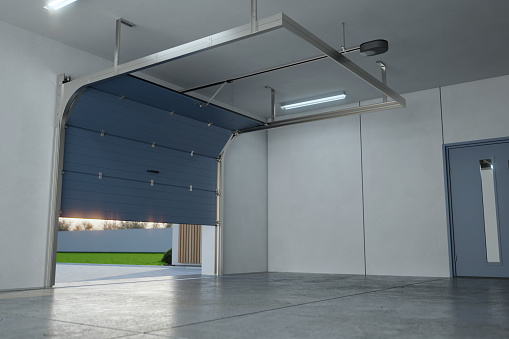Understanding the Role of Garage Doors in Home Energy Efficiency where energy
Understanding the Role of Garage Doors in Home Energy Efficiency where energy
Blog Article

In an era where energy efficiency is increasingly important for homeowners, every aspect of a residence contributes to overall energy consumption. One often-overlooked element is the garage door. While it may seem like a simple entry point, a garage door can significantly affect the energy efficiency of a home. Understanding garage door energy efficiency can help homeowners make informed decisions that will enhance comfort, reduce energy costs, and promote environmentally friendly practices.
Understanding the Role of Garage Doors in Home Energy Efficiency
Garage doors represent a substantial portion of a home's exterior, and their construction and insulation can impact the thermal performance of the entire house. In many homes, garages are attached to the main living area, meaning any heat loss or gain through the garage door can influence indoor temperatures. Poorly insulated or unsealed garage doors can allow conditioned air to escape, leading to increased heating and cooling demands for the rest of the home.
When evaluating garage door energy efficiency, it is essential to consider factors such as the door's material, insulation value, and sealing. Common materials include steel, wood, and fiberglass, each with varying levels of insulation properties. An insulated garage door can significantly reduce heat transfer, helping to maintain a more stable temperature within the garage and adjacent living spaces.
Tips for Improving Garage Door Energy Efficiency
Improving garage door energy efficiency involves a combination of choosing the right materials and implementing practical maintenance strategies. Here are several actionable tips:
1. Choose Insulated Garage Doors
One of the most effective ways to enhance energy efficiency is to invest in insulated garage doors. Look for doors with a high R-value, which measures thermal resistance. The higher the R-value, the better the door insulates against heat transfer, keeping the garage and connected living areas more comfortable.
2. Sealing and Weatherstripping
Ensure that the garage door is properly sealed to prevent drafts. Inspect the weatherstripping around the edges of the door and replace any worn or damaged sections. Quality seals will help minimize air leaks, further enhancing energy efficiency.
3. Regular Maintenance
Regular maintenance of the garage door and its components contributes to optimal performance. Ensure that the tracks and rollers are clean and lubricated, and check the balance of the door. A well-functioning garage door operates more efficiently, reducing the energy required to open and close it.
4. Consider Energy-Efficient Openers
If your garage door opener is outdated, consider upgrading to a more energy-efficient model. Look for openers that use less energy while providing the same level of functionality. Some modern openers also come with features like battery backup systems, which can enhance reliability during power outages.
Benefits of Upgrading to Energy-Efficient Garage Doors
Investing in energy-efficient garage doors offers numerous benefits that extend beyond just reducing energy bills. Here are some of the key advantages:
1. Cost Savings
By improving garage door energy efficiency, homeowners can experience significant savings on heating and cooling costs. Insulated doors and proper sealing keep conditioned air where it belongs, reducing the workload on HVAC systems and leading to lower energy bills.
2. Enhanced Comfort
A well-insulated garage can help maintain a more consistent temperature in both the garage and the adjoining living spaces. This can lead to increased comfort, especially during extreme weather conditions.
3. Environmental Impact
Reducing energy consumption contributes to a smaller carbon footprint. By enhancing garage door energy efficiency, homeowners are not only lowering their energy costs but are also making a positive impact on the environment.
4. Increased Home Value
Upgrading to energy-efficient garage doors can enhance the overall value of a home. Potential buyers often look for energy-efficient features, and a well-insulated garage door can be a selling point when it comes time to list the property.
In conclusion, focusing on garage door energy efficiency is a wise investment for any homeowner. By understanding the role garage doors play in overall energy consumption, implementing practical tips for improvement, and recognizing the benefits of energy-efficient upgrades, homeowners can create a more comfortable, cost-effective, and environmentally friendly living space. For more information on enhancing garage door energy efficiency, consider consulting professionals who specialize in garage door solutions.
For additional resources and expert guidance on garage door energy efficiency, visit Goldie Garage Doors.
Report this page